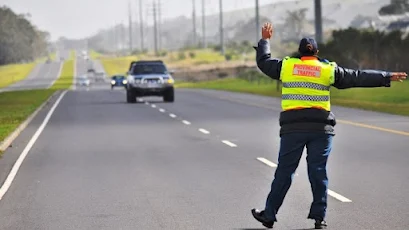Featured
- Get link
- X
- Other Apps
Big changes to traffic fines in South Africa coming soon
The Administrative Adjudication of Road Traffic Offences (AARTO) system, which streamlines traffic offences and introduces a demerit points system that could lead to suspended or cancelled licences, is expected to be rolled out across South Africa from 1 July 2024.
The AARTO system, which has been in its trial phase for several years in Johannesburg and Tshwane, is said to aim to improve road safety by addressing traffic violations more effectively and strictly.
However, some critics say that it is instead aimed at revenue collection rather than road safety.
What the AARTO entails
Some of the key features of the AARTO system include:
- Points demerit system: Each traffic violation carries a certain number of demerit points. Accumulating too many points can result in penalties such as license suspension (12 points) or cancellation (15).
- Fine payment and appeals process: Offenders receive notices of traffic violations and have the option to pay fines or contest the charges through a formal appeals process (through a tribunal).
- Infringement notices and penalties: Offenders receive infringement notices detailing the alleged violation and the associated penalty. Penalties may include fines, demerit points, or both.
- Driver rehabilitation: The AARTO system includes provisions for driver rehabilitation programs aimed at reforming habitual traffic offenders.
Traffic fines “are a very confusing space with multiple websites and traffic fine systems,” Barry Berman, CEO of Fines SA, said in an interview with Kaya Biz.
“[AARTO] puts all [traffic offence] systems into one place so that motorists know exactly where they stand – what outstanding fines they have, where there are discounts applicable, and they can pay all of their fines on a national basis in one place,” said Berman.
People are alerted on a monthly basis regarding outstanding fines, with several different ways to pay.
Motorists can use discounts if they settle their fines promptly. “The sooner you pay [the fines], the more you save,” said Berman.
Minister of Transport Sindisiwe Chikunga confirmed on 15 May that her department is putting in the structures necessary to implement AARTO, including the appointment of the members of the AARTO Appeals Tribunal.
Backlash
Resistance to the AARTO system traces back to the introduction of the Administrative Adjudication of Road Traffic Offences Amendment Act.
The Organisation Undoing Tax Abuse (OUTA) brought an application calling on the highest court in the land to confirm the Pretoria High Court’s 2022 judgement which found the AARTO legislation to be unconstitutional and invalid.
According to OUTA, the legislation “unlawfully intrudes upon the exclusive executive and legislative competence of the local and provincial governments envisaged in the Constitution, preventing local and provincial governments from regulating their own affairs.”
However, the Constitutional Court disagreed, paving the way for the rollout of the AARTO.
“In a unanimous judgment written by me, the Constitutional Court has upheld the contentions advanced by the minister of transport, the Road Traffic Infringement Agency [RTIA] and the Road Traffic Management Corporation,” said Chief Justice Raymond Zondo.
In response to this judgement, the Automobile Association of South Africa said, “While we naturally respect the Constitutional Court’s decision, we remain concerned that AARTO will not deliver on its intended outcomes of improving road safety and reducing road carnage on our roads.”
“We stand by our previous views that the AARTO legislation is geared towards revenue collection and not on promoting safer roads,” the AA said.
“Introducing legislation will not solve the country’s road safety crisis. This merely creates an impression of action while noting will change on the ground, where it is needed [and] as part of our contention, we point to the fact that there is no evidence that the AARTO pilot project saved a single life,” the AA added.
- Get link
- X
- Other Apps
Popular Posts
k53 Online learners licence practice tests
- Get link
- X
- Other Apps
11 traffic cops arrested in Limpopo for alleged corruption and bribery
- Get link
- X
- Other Apps



Comments
Post a Comment